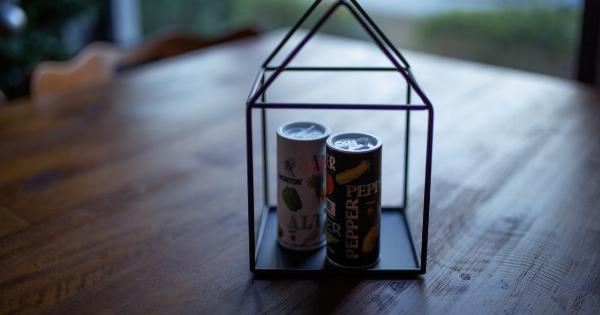Caffeine is the world’s most popular psychoactive drug and is consumed in various forms such as coffee, tea, chocolate, energy drinks, and soft drinks.
While caffeine has been associated with numerous health benefits, too much of it can be hazardous to our health. One area of our health that caffeine can affect is our hearing. In this article, we’ll take a closer look at the hazards of caffeine on your ears.
What is caffeine?
Caffeine is a natural stimulant that is found in the seeds, leaves, and fruits of some plants. It works by increasing the activity of the central nervous system, which makes us feel more alert and awake.
Caffeine is commonly used to fight fatigue, improve mood, and enhance cognitive function. It is also widely used to increase physical performance.
How does caffeine affect our ears?
While caffeine is generally considered safe for consumption, excessive intake of caffeine can lead to various health problems, including hearing problems.
Research has shown that caffeine can affect the inner ear and the auditory nerve, leading to hearing loss and tinnitus (ringing in the ears).
Hearing loss
Hearing loss is commonly caused by damage to the hair cells in the inner ear that are responsible for converting sound waves into electrical signals that are sent to the brain.
Exposure to excessive noise, aging, and certain medications are some of the known factors that can damage these hair cells. Research has shown that caffeine can cause a decrease in blood flow to the cochlea, which is the part of the inner ear that contains the hair cells.
This decrease in blood flow can lead to the death of the hair cells, resulting in permanent hearing loss.
Tinnitus
Tinnitus is a condition that is characterized by the perception of ringing, buzzing, hissing, or other sounds in the ears or head. It is usually caused by damage to the hair cells in the inner ear, exposure to loud noise, and other factors.
Research has shown that caffeine can increase the production of the neurotransmitter glutamate in the inner ear, which is known to be involved in the development of tinnitus. Caffeine also causes vasoconstriction, which reduces blood flow to the cochlea and can worsen tinnitus symptoms.
How much caffeine is too much?
The amount of caffeine that is considered safe varies from person to person and depends on various factors such as age, weight, and tolerance. In general, a moderate intake of caffeine (up to 400 mg per day) is considered safe for most adults.
However, excessive intake of caffeine can lead to various health problems, including hearing problems. It is important to monitor your caffeine intake and consume it in moderation.
Prevention and treatment of hearing problems caused by caffeine
If you have hearing problems such as hearing loss or tinnitus that are caused by caffeine, the best way to prevent them is to reduce your caffeine intake. You can do this by gradually decreasing your caffeine consumption over a period of time.
You can also switch to decaffeinated drinks and foods that contain less caffeine. If you already have hearing problems caused by caffeine, there are various treatment options available such as hearing aids, sound therapy, and cognitive-behavioral therapy.
Conclusion
Caffeine is a popular and widely consumed stimulant that can have hazardous effects on our health, particularly our ears. Excessive intake of caffeine can lead to hearing problems such as hearing loss and tinnitus.
It is important to monitor your caffeine intake and consume it in moderation to prevent these problems. If you already have hearing problems caused by caffeine, there are various treatment options available. Take good care of your ears and avoid excessive consumption of caffeine to maintain good hearing health.





























